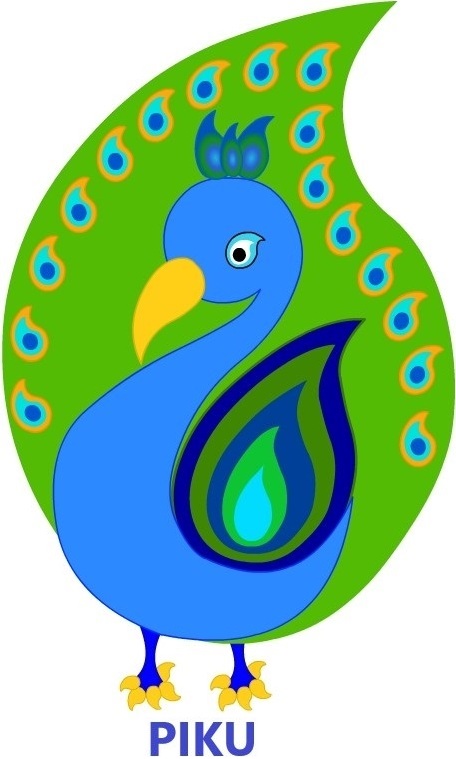This projected was sanctioned on 1st September,, 2019 by the National Water Mission which is being implemented by Indian Institute of Technology (IIT), Roorkee. The project is about improvement in irrigation efficiency will enhance the availability of water for meeting the increasing demands of the other sectors. The conjunctive use of surface water and ground water needs to encourage for irrigation in the command area at farm level for sustaining the water resources minimizingthe chances of water logging particularly in the head reaches of the canal command areas. But in-appropriate water management is an old problem in On Farm Water Management (OFWM). But this problem now ranks higher on the agenda, as the word is faced withsignificant increase in population, as food security becomes more of an issue and as land and waterresources become scarcer. Over irrigation is a common problem. Traditional management of practices irrigation supply, and conveyance systems often contribute to high water loss. On many farms, the lowirrigation efficiency is further accentuated by farmer’s traditional irrigation methods and practices.
In thepast, extensive research in many countries has shown that in irrigated agriculture, OFWM practices requireappropriate designed on-farm distribution systems.Innovative technologies are required to ensure a greener and more sustainable food production. They are needed to improve crop yields; implement efficient irrigation strategies; reuse of drainage water and useof water resources of marginal quality; produce smarter ways to use fertilizer and water.Majority of farmers are actually not aware of improved OFWM practices such as channel to field irrigation. This is also one of the reasons why they practice field to field irrigation, resulting wastage ofwater.
In order to make farmers properly aware as well as convinced about improved OFWM practices, it will be required to have suitable extension methods like training, seminars/workshops, and demonstration plotson the practices etc. Group approaches to farming may also be undertaken as action research cumdemonstration units by the Department of Water Resources Development and Management (DWRDM),IIT Roorkee and similar ones, through people’s participation, in order to ensure collective adoption ofvarious agricultural practices, including improved OFWM methods by farmers.
The following are some of the focus areas on which OFWM practices can be promulgated:
- Irrigation potential created and utilized – focused action to reduce the gap, where exists.
- Delta/Duty of water
- OFD works - sufficiency, maintenance status
- Equity, dependability
- Inputs and other services
- Conjunctive use of water
- Productivity
- Environmental impact
- Farmers participation
- Economic impact: revenue return, farm return
- Social impact: employment generation, prosperity
The objective of the project
Looking to the aforementioned, this study is proposed with the following specific objectives:
- To enhance water use efficiency at farm level through various measures of minimizing thewater losses in the watercourse and in the irrigated field.
- To evolve irrigation scheduling considering the crops, soil moisture and prevailing climatic conditions using Internet of Things (IOT).
- To study the efficacy of various micro-irrigation methods such as sprinkler and drip and,evaluate the water savings as well as enhanced water use efficiency at farm level due toadoption of these methods over the prevailing method of flood irrigation.
- To identify various factors which would help to promote adoption of the improved OFWMpractices by the farmers, and various constraints which discourage the farmers for adoptingthose practices.
- To review the role of existing Water Use Associations (WUA) and suggest suitablemodifications for encouraging the better OFWM practices and equitable water distributionamong the farmers and on line demonstration and organization of workshops on OFWMpractices.
Activities Undertaken for the project
- A field visit was made to the UGC canal command area in order to identify the study area. The study area has been identified near the Village: NaglaAimad, Narsan Block, Haridwar.
- A field survey was conducted and soil samples have been collected. The collected samples were analyzed for their physical property i.e. soil type, bulk density, field capacity, permanent wilting point, and infiltration rate, etc. in the Irrigation Water Management Laboratory.
- During the field survey, the information regarding the cropping pattern irrigation methods productivity and farm machinery being used was collected through interaction with the concerned farmers. Sugarcane crop has been sown in the Pilot study area.
- The quantity of water applied for irrigating the sugarcane crop using the conventional method has been measured in the field.
- Junior Research Fellow has been appointed under the project on 15th June, 2020.
Ongoing Activities under the Project
- Procurement of various field measurement and data recorder equipment is in progress.
- Further, pilot project experiments and analysis are in progress.
Expected outcome of the Project
- It is envisaged that the outcome of the study will be directly helpful in the preparation of an action plan for the country to enhance the irrigation water use efficiency of the existing irrigation projects.










